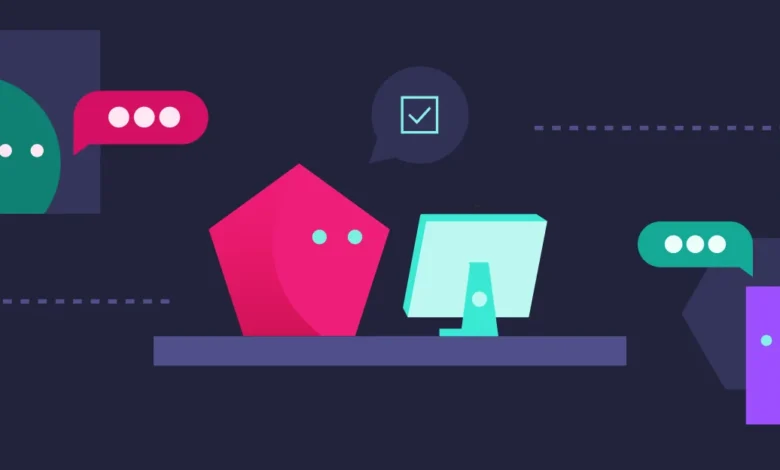
If you thought the COVID-19 pandemic sparked change in the workplace, today’s landscape is even more dynamic. Employees now expect personalization in nearly every aspect of their lives – how they communicate, and where and when they work. As noted at the 2025 World Economic Forum, this demand is accelerating, with employees seeking work environments that cater to their individual needs. Amid these changes, AI has become essential in how businesses manage talent and shape their workforce.
We stand at a pivotal moment. Will we use AI to truly create inclusive workplaces where everyone has an equal opportunity to succeed, or will we risk embedding biases into our systems, automating discrimination at scale? The promise of AI is undeniable, but its potential for both good and harm depends entirely on how we design and implement it.
The Current State of Workplace Inclusivity
Findings from Inclusively’s latest research highlights a significant gap in how employees, especially those with disabilities, access the resources they need to thrive in their roles. In a survey of job seekers, we found that 58% of respondents viewed workplace accommodations as crucial to their success. Yet, a staggering 46% of those who requested accommodations found the process either difficult or extremely difficult. This gap underscores the struggles many employees face in trying to obtain the support they need.
The most troubling statistic is that almost half of respondents admitted they didn’t feel safe disclosing disability-related information to their employers. This hesitation stems from the fear of discrimination, the potential for career limitations, and the overwhelming burden of explaining personal challenges.
For many, the decision to remain silent is seen as the safer choice.
Today’s workplace systems are failing to create inclusive environments for employees with disabilities. Traditional HR processes are reaching only 3-5% of employees who need accommodations. Meanwhile, an estimated 20-30% of the workforce has a disability but chooses not to disclose it. This gap represents millions of talented individuals who remain untapped, their potential hindered by systems that are not designed to fully support them.
How AI Can Transform Workplace Inclusion
While the data paints a bleak picture, the good news is that we have the opportunity to use AI to transform workplace inclusivity. We’ve already seen improvement in the way employers create more inclusive hiring and workplace experiences for people with disabilities, chronic illnesses, and neurodivergence.
With patented AI-powered chat assistants, it’s proven the power of technology to support employees in real time. These chat assistants use multiple AI models to analyze employee queries, determine their relevance to support needs, and generate personalized recommendations. By leveraging conversation history and rephrasing for clarity, the platform delivers a seamless, accessible experience that helps both employees and employers.
But it goes beyond simply responding to requests for accommodations. The true power of AI lies in its ability to predict needs before they arise.
By identifying patterns and trends in employee data, AI can offer proactive solutions that help companies stay ahead of potential issues. For example, data from Inclusively users reveals that organizational tools (26%) and anxiety management apps (18%) are among the most requested success enablers by employees. Armed with these insights, HR leaders can proactively offer solutions, helping create an environment where everyone – including employees with disabilities – can thrive.
The Risks of Implementing AI Without Inclusivity
While the benefits of AI in driving inclusivity are clear, there are significant risks if AI is not implemented thoughtfully. A critical risk is the reinforcement of existing biases and inequalities. If AI systems are designed and implemented without diverse input, they risk perpetuating the same systemic biases that have historically excluded marginalized groups.
The issue isn’t just about making AI “work” for the majority. True innovation in AI requires actively involving underrepresented voices in the development process to ensure that the technology benefits everyone. Otherwise, we run the risk of creating systems that serve the status quo, rather than disrupting it in meaningful ways.
AI systems, especially those used in hiring and talent management, must be trained and tested to ensure they do not inadvertently discriminate against people with disabilities or other marginalized groups. It’s not enough to simply “build the system” – we must continually evaluate and improve these systems, factoring in the lived experiences of those who have historically been excluded from the conversation.
The Business Case for Inclusive AI
While the moral imperative for inclusive AI is clear, there’s also a compelling business case. According to the World Health Organization, companies lose approximately $1 trillion annually due to low productivity, much of which is driven by unaddressed workplace needs. These costs are often tied to employees who face barriers to success but lack the accommodations and support needed to perform at their best.
Now That AI Is Here—Inclusive AI Is Essential
The AI revolution is unfolding before our eyes, and the impact of AI on the workplace is undeniable. However, how this revolution plays out will be determined by the choices we make today. Will we harness AI to create inclusive workplaces where everyone can thrive, or will we allow it to automate and perpetuate existing inequalities?
As we continue to design and implement AI systems across the talent lifecycle, we come back to the fundamental question: Are we building technology that works for everyone, or just for those who have historically been well-served by existing systems?
Now is the time as business, HR, workplace and tech leaders to make the right choice – one that ensures AI becomes a force for good, driving inclusion, opportunity, and growth for all.
Charlotte Dales is the CEO and co-founder of Inclusively, a technology platform that enables workplace personalization at scale by helping companies adopt a universal approach to supporting their employees.



